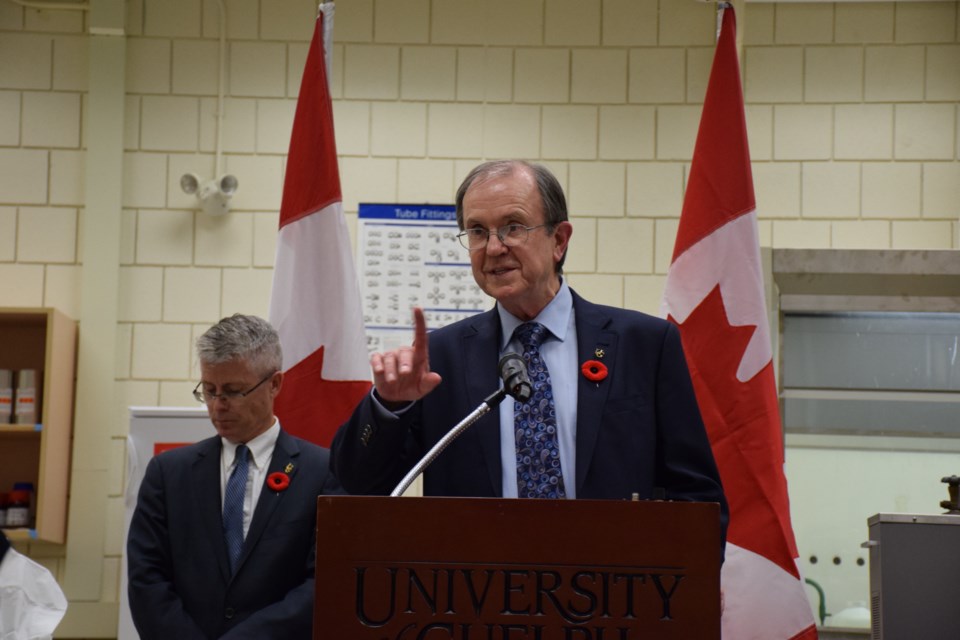University of Guelph nuclear science researchers and their nuclear industry partners packed a cramped laboratory on campus Tuesday for a funding announcement with potentially long-term implications for Canadian-made Candu nuclear reactors and next generation reactors.
Those Candu reactors, most built over 30 years ago, are unique, and have unique maintenance requirements over time, said Peter Tremaine, a U of G chemistry professor with an long and illustrious career in research related to the water chemistry environment of nuclear reactors.
Tremaine has been named the NSERC/UNENE Senior Industrial Research Chair in High-Temperature Aqueous Chemistry, a position funded to the tune of $2.5 million over five years. Industrial Research Chair grants are given to international leaders in various fields.
While $930,000 of that money comes from the Natural Sciences and Engineering Research Council of Canada (NSERC), over $1 million of it comes from the nuclear industry.
UNENE stands for University Network of Excellence in Nuclear Engineering, within which there are several participating Canadian universities.
Candu reactors were estimated to have an operational life of about 30 years, but extending that life is now a priority. As a scientist, Tremaine has focused 30 years of research the high-temperature, high-pressure water chemistry in nuclear reactors.
His longstanding lab at the university is one of the few in the world able to study water chemistry under extreme heat and pressure conditions.
During the announcement, Tremaine said Candu reactors now require this type of research in order to sustain them. Knowing how to control things like corrosion is crucial.
He said many researchers in his field began their work when the first Candu reactors where built, and many are now retiring. It is vital to retain their knowledge and bring the next generation of scientists up to address contemporary needs.
Malcolm Campbell, U of G’s vice-president (research), said during the announcement that the establishment of the Industrial Research Chair is in keeping with the high level of excellence the university strives to achieve.
Guelph MP Lloyd Longfield made the announcement on behalf Kirsty Duncan, Minister of Innovation, Science, and Economic Development. He said important research is going on in new technologies in the nuclear field, and “it’s good to see you are doing it right here in Guelph.”
Tremaine said the Industrial Research Chair position will contribute to the education of graduate students, post-doctoral personnel, and research managers in industry.
It will bring industrial scientists and research engineers together with those students to advance knowledge and solve problems.
Research projects that address important industry challenges will be a priority. The advances in the science should have a major impact on the nuclear industry, Tremaine added.
